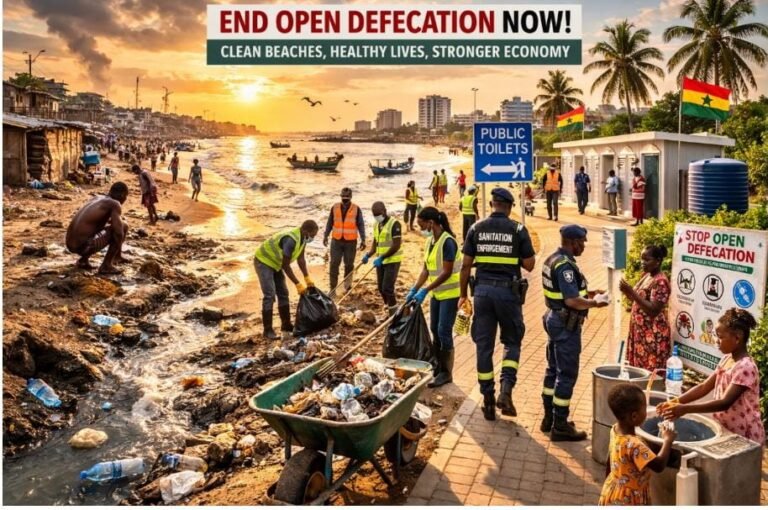

The Ministry of Education’s latest report, seen by the Daily Statesman, has shed light on a momentous development within country’s education sector.
The report delves into SHS enrolment trends spanning 2014 to March 3, 2024, revealing an unprecedented surge in Senior High School (SHS) enrolment.
Increasing trend
Analysing the data, the report unveils a remarkable progression over the years. In 2014, the figures for the number of qualified and placed students enrolled in SHS were 273,152 and 386,412 respectively. It revealed that in 2015, the number of placed and qualified students enrolled in SHS was 415,012 and 299,649 respectively, representing 72.20%.
In 2016, the number of placed and qualified students enrolled in SHS was 420,135 and 308,799, representing 73.50%. In 2017, the number of placed and qualified students enrolled in SHS was 424,224 and 362,775 respectively, representing 85.51%. In 2018, the number of placed and qualified students enrolled in SHS was 486,354 and 432,954 respectively, representing 89.02%. In 2019, the number of placed and qualified students enrolled in SHS was 432,405 and 404,851 respectively, representing 93.63%.
In 2020, the number of placed and qualified students enrolled in SHS was 480,413 and 425,397 respectively, representing 88.55%. In 2022, the number of placed and qualified students enrolled in SHS was 532,038 and 465,903 respectively, representing 87.57%. In 2023/2024, the number of placed and qualified students enrolled in SHS as of March 3, 2024, was 554,034 and 504,580 respectively, representing 91.07%.
Interventions/initiatives
The report states that the surge in enrolment reflects the success of various government interventions and initiatives aimed at improving access to education and ensuring that every Ghanaian child has the opportunity to access quality education.
The report also highlights that one of the most remarkable aspects of this surge in SHS enrolment is that it had not come at the expense of quality. Despite the increase in student numbers, it stresses, education authorities have maintained a steadfast commitment to upholding high standards of education.
The report further notes that the implementation of the Free SHS programme, along with targeted interventions to improve teaching and learning outcomes, had ensured that students continue to receive a quality education that prepares them for success in the future.
Leveraging technology
Regarding leveraging technology, the report mentioned that in line with efforts to reposition Ghana’s education system to align with the Fourth Industrial Revolution, Ghana had introduced the Smart Schools Project to enhance the learning experience for SHS students.
The Ghana Smart Schools Project (GSSP) is an extension of the government’s Free SHS and TVET digitalization agenda to transform Ghana’s economy. The project seeks to equip Ghanaian students with 21st-century learning opportunities to compete globally. Under this project, all public Senior High School students (GES & TVET) will be supplied with tablets fully loaded with a customized Learning Management System (LMS).
According to the report, the government has enrolled about 5.7 million children who have benefited while some are still benefiting from the Free SHS policy.
“The government of Ghana has made education a catalyst through which the future transformation of our dear nation would revolve. Free SHS has been a remarkable novelty after the Covid-19 Pandemic and other dire economic constraints.
“We have been able to sustain the Free SHS Programme and escalated to include the distribution of free tablets to each public school (SHS/TVET) and STEM without compromising the needs to lower the level of the educational system. Every student gets a preloaded tablet accessorized with a backpack, solar recharged, and an offline version of the course content,” the report indicates.
Gender parity
The report stresses that Ghana has attained gender parity in SHS enrolment, surpassing many other countries in Sub-Saharan Africa.
It notes that a comparative analysis reveals that Ghana’s progress in gender equality in education is commendable, with equal opportunities provided to both male and female students.
This achievement, the report states, is a testament to the government’s commitment to promoting gender equality and empowering girls through education. “By ensuring that all children, regardless of gender, have access to education, Ghana is paving the way for a more equitable society,” the report adds.
Impact on health
The report also says the increase in SHS enrolment has had a positive impact on health outcomes, particularly in the reduction of HIV/AIDS infections among youths.
“Education has long been recognized as a powerful tool in HIV prevention, as it equips young people with the knowledge and skills to make informed decisions about their sexual health with the removal of the barriers of access and the integration of comprehensive sexuality education into the SHS curriculum has played a significant role in raising awareness about HIV/AIDS prevention and promoting healthier behaviours among students,” it states.
As a result, the report noted that health officials had observed a decline in HIV/AIDS prevalence rates among SHS students, demonstrating the critical role that education plays in improving public health outcomes.
“This translates into a reduction of new HIV infections by 26% while AIDS related deaths also reduced by 38% between 2017 and 2021,” it disclosed.
The report emphasises that the record growth in SHS enrolment signifies a significant step forward in the country’s efforts to provide accessible, equitable and quality education for all.






Please I’m currently doing a research on free shs in Ghana and I would appreciate it if you could give me the name or copy of this mentioned Ministry of Education report.